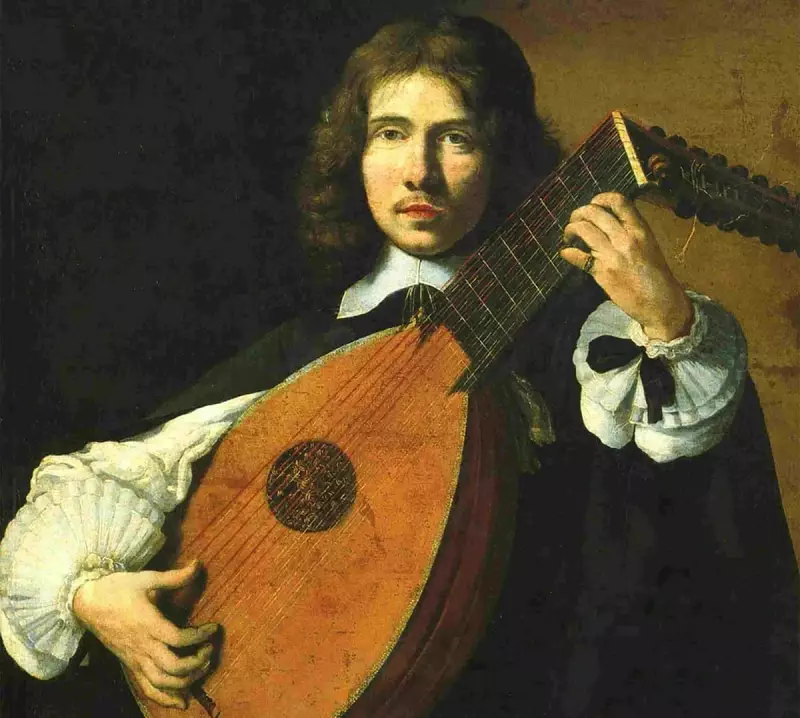
As winter tightens its grip on the British landscape, a remarkable poem written over four centuries ago continues to resonate with timeless wisdom about finding warmth and companionship during the coldest months. Thomas Campion's Now Winter Nights Enlarge stands as a masterpiece of Renaissance literature that celebrates winter's unique pleasures.
The Renaissance Man: Poet, Composer and Physician
Thomas Campion (1567-1620) embodied the Renaissance ideal of the multi-talented scholar. While studying at Cambridge University, he developed a passionate interest in Classical literature that would shape his entire artistic career. Interestingly, Campion left Cambridge without completing his degree, yet this didn't prevent him from becoming one of the most intellectually ambitious poets of his era.
This week's featured poem comes from The Third Book of Ayres, demonstrating Campion's unique ability to blend poetry with musical composition. His lyrics maintain their depth and complexity even when read silently on the page, rather than performed with their intended musical accompaniment.
Analysing the Winter Masterpiece
Now Winter Nights Enlarge sings the consolations of winter with characteristic grace and precision. The poem opens with a recognition of winter's expanded darkness: "Now winter nights enlarge / The number of their hours". Rather than lamenting this extended darkness, Campion transforms it into an opportunity for indoor pleasures and intellectual pursuits.
The poem's structure reveals Campion's technical mastery. Written predominantly in iambic trimeter, it creates a light but firm rhythm that echoes the themes of measured entertainment and social interaction. However, Campion strategically expands to iambic pentameter in the penultimate line of each verse, perhaps mimicking the way winter nights themselves "enlarge the number of their hours".
Campion proves himself a sensuous conjuror of atmosphere throughout the poem. He paints vivid pictures of "chimneys blaze" and "cups o'erflow with wine", creating a warm domestic scene that contrasts sharply with the storms raging outside the "airy towers". The choice of "airy" subtly puns on his musical "Ayres", suggesting that his compositions form part of the evening's entertainment.
The Intellectual Dimension
What separates Campion from mere atmospheric poets is his intellectual engagement with his subject matter. The poem contains an argument that the poet thinks through carefully, creating tension through "interestingly mixed feelings" about winter pleasures.
The second verse acknowledges that "All do not all things well" when it comes to the evening's entertainments—whether reciting poetry, dancing, or telling riddles. This dry observation reveals Campion's perfectionist tendencies and adds a layer of psychological realism to the otherwise idealised scene.
Even love itself receives a somewhat qualified endorsement in the final lines: "Though love and all his pleasures are but toys, / They shorten tedious nights." This conclusion feels earned rather than trite, acknowledging both the limitations and practical benefits of romantic diversion during long winter evenings.
Campion's Complex Relationship with Rhyme
Despite his evident skill with rhyme in Now Winter Nights Enlarge, Campion maintained an ambivalent relationship with the technique throughout his career. In his treatise Observations in the Art of English Poesie, he begins with "forthright criticism of 'ear-pleasing' rhymes that are 'without art'".
He famously lamented that "the facility and popularity of Rime creates as many Poets as a hot summer flies". Critics remain divided about whether Campion objected only to poorly handled rhyme or to the technique altogether. What's clear is that he held ambitious theoretical views about poetry's intellectual scope beyond mere technical virtuosity.
Campion's investigation of syllable stress and prosodic terms like iambs and trochees in his Observations reveals his deep engagement with poetic technique. The treatise includes excellent examples of his own unrhymed work, including the beautiful lyric Rose-cheeked Laura, which has rightly entered the literary canon.
Another less-known unrhymed poem featuring Laura demonstrates how Campion could achieve remarkable effects without rhyme. The trochaic dimeters of Follow, follow create a compelling rhythm that would likely be spoiled by conventional rhyming patterns.
Thomas Campion's Now Winter Nights Enlarge remains a testament to his unique talent for blending musicality with intellectual depth. As modern readers navigate their own winter experiences, this 400-year-old poem continues to offer wisdom about finding light, warmth, and meaningful connection during the year's darkest days.





